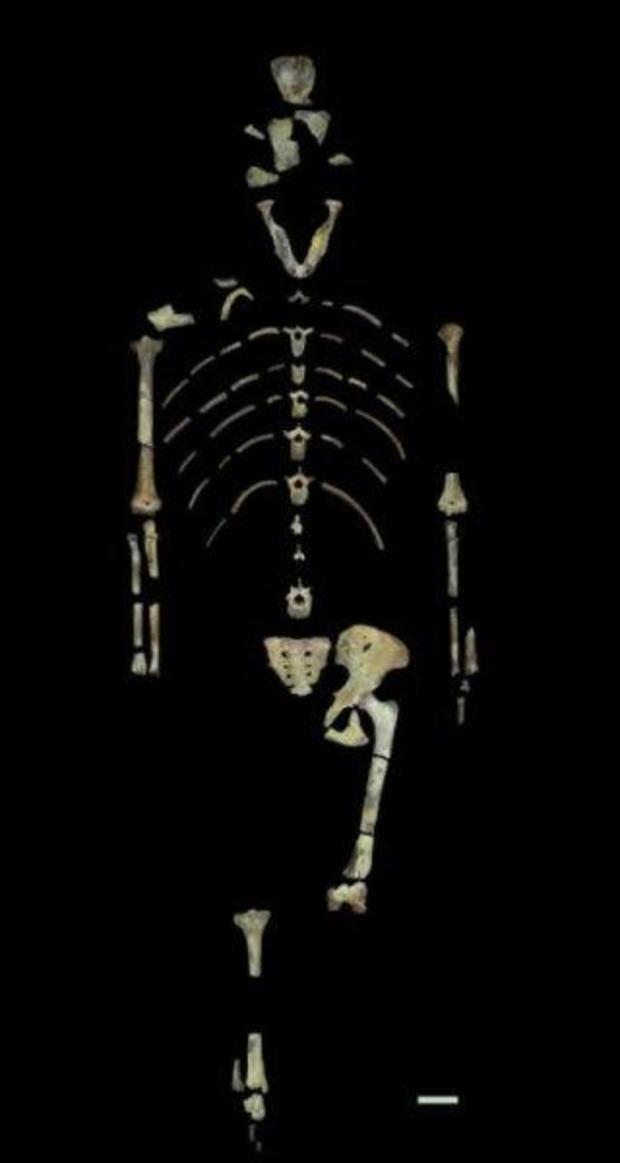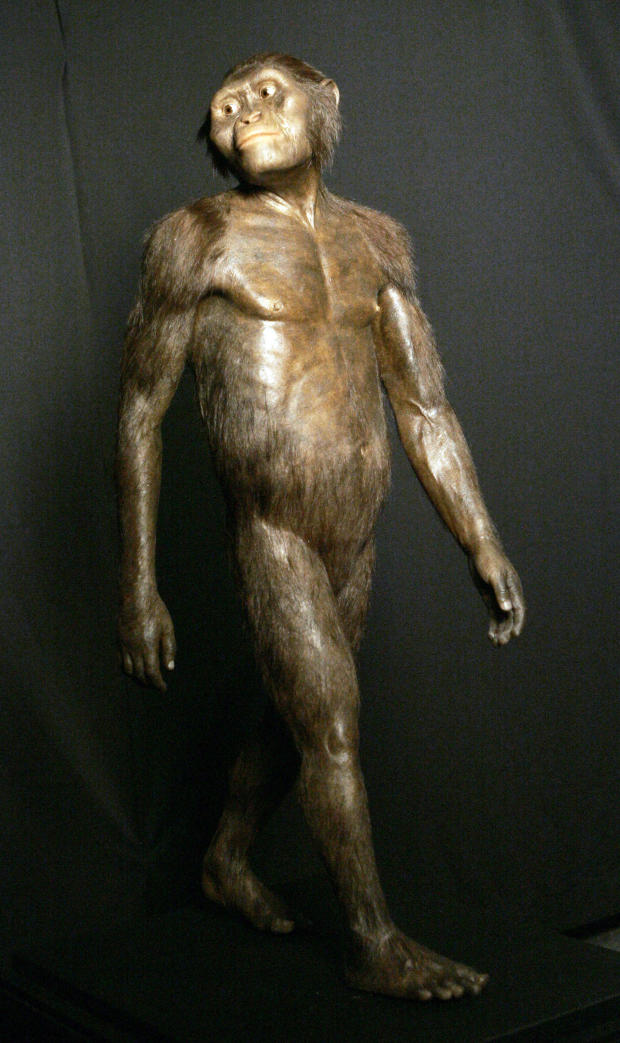Human ancestor "Lucy" was a tree climber, evidence suggests
She was discovered 42 years ago, but the 3-million-year-old human ancestor dubbed “Lucy” is still providing new insights on the human origin story. Now, new research suggests this predecessor to modern humans was an adept tree climber.
The evidence of Lucy’s tree-climbing habits was found in high-resolution CT scans of her fossilized bones, according to scientists from the Johns Hopkins University and the University of Texas at Austin. Those CT scans were intricately 3D printed, allowing for direct comparisons to the bones of early hominids, modern humans, and modern chimpanzees. The researchers’ work was published this week in the journal PLOS ONE.
Lucy’s arms were heavily toned, supporting the idea that she routinely used them to pull herself up on branches, the researchers said. Her muscle mass would have been similar to that of tree-climbing chimpanzees. Meanwhile, her feet were better suited to walking upright than gripping branches.
“The upper limbs of chimpanzees are relatively more heavily built because they use their arms for climbing, with the reverse seen in humans, who spend more time walking and have more heavily built lower limbs,” Christopher Ruff, Ph.D., a professor of functional anatomy and evolution at the Johns Hopkins University School of Medicine, said in a press statement.
“The results for Lucy are convincing and intuitive.”
Clues found in Lucy’s skeleton are key to understanding the lifestyle she led, according to study co-author John Kappelman.
“It is a well-established fact that the skeleton responds to loads during life, adding bone to resist high forces and subtracting bone when forces are reduced,” Kappelman said.
Tree climbing may have helped Lucy forage for food and escape from nearby predators.
Scholars have debated whether Lucy spent all her time walking on the ground or combined walking with tree climbing.
Previous research has suggested that perhaps Lucy died from falling from a tree.
Lucy’s skeleton is one of the oldest, most complete fossils ever found of an adult human ancestor who walked upright. Previous studies suggest she stood less than 4 feet tall and weighed less than 65 pounds.
Lucy’s bones were found in Ethiopia in 1974. About 40 percent of the complete skeleton was recovered and pieced together.
Lucy lives at the National Museum of Ethiopia.





